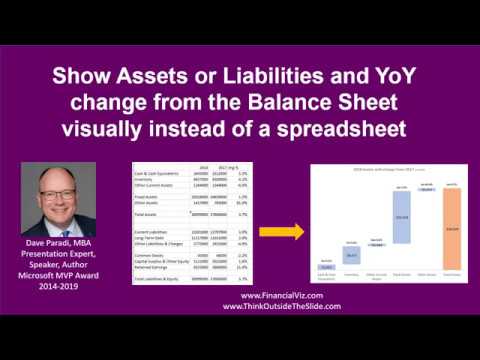UK Tax Update December 2022
Content

Just let us know, we will assist you to achieve your business goals. YourUK limited company incorporationwill benefit your business from a more professional image. This can help to build customer trust in your products or services and also give you more opportunities to cooperate with the potential partners. When using One IBC®’s services, the business owners do not worry about complex reports that are required in the UK.
- In addition, from 1 April 2023, a 19% small profits rate of corporation tax will be introduced for companies whose profits do not exceed GBP 50,000.
- In many cases, an inactive firm might still be responsible for corporation tax if HMRC sends out a ‘Notification to supply a business tax return’.
- An exception may apply where the recipient of the interest is subject to UK corporation tax in respect of the interest, so that interest payable in respect of loans made by non-UK companies or banks through a permanent establishment situated in the UK should normally be exempt from withholding.
- Rather, they should have considered Luxembourg’s application of the arm’s length principle solely by reference to Luxembourg’s domestic laws and guidance.
- In the financial year 2004–2005, approximately 39,000 companies paid corporation tax at the main rate.
- In 1973, alongside the introduction of advance corporation tax , Conservative chancellor Anthony Barber created a main rate of 52%, together with a smaller companies’ rate of 42%.
- From April 2023, UK taxpayers which are large multi-national businesses (those with turnovers above €750 million) will be required to maintain both and to provide them to HMRC for inspection on 30 days’ notice.
Where tax is withheld, it will have to be paid to HM Revenue & Customs to account for the investor’s liability for UK tax. In certain circumstances investors can then claim a repayment from HMRC of the tax withheld. Although the amount of investment qualifying for SEIS relief is quite low – only £100,000 a year – in certain circumstances, qualifying investors will be able to claim income tax relief worth 50% of the cost of buying shares United Kingdom Corporation Tax in the company. Where employees or directors of the business, including those intending to become employees or directors in the future, acquire shares in the company at less than their actual market value, they may be charged to income tax on the difference between the price paid and market value. NICs for both the business as the employer and the employee may also be due on the difference between the price paid and the market value.
United Kingdom corporation tax
The government will still see taxes as influencing future consumer behaviour and as a good source of income; for example, using road pricing as a way to replace revenue lost from fuel duties as we switch to electric cars. Further consultations on reducing single use plastics may be announced, as well as future rule changes to tighten up existing green taxes (e.g., a future increase in the 30% recycled plastic threshold for an exemption from the plastic packaging tax). The Court then noted that the legislation on CFCs involves a difference in the treatment of resident companies on the basis of the level of taxation imposed on the company in which they have a controlling holding and that that difference in treatment creates a tax disadvantage for the resident company to which the legislation on CFCs is applicable . In this case, it is clear from the order making the reference that the claimants in the main proceedings who are subject to the legislation in question in connection with the second question referred did not own a controlling shareholding in the capital of the companies from which they received dividends, but only a portfolio holding, held for investment purposes, of less than 10%. Certain specific provisions concern the taxation of investment income, particularly dividends, received by insurance companies on assets allocated to pensions business and life assurance business.
- It may also be that a Member State will be able to demonstrate that a restriction on the movement of capital to or from third countries is justified for a particular reason in circumstances where that reason would not constitute a valid justification for a restriction on capital movements between Member States .
- You are freedom international money transfer under your offshore company.
- The Good Friday Agreement in 1998 led to the establishment of the Northern Ireland Assembly, the devolved legislative body for Northern Ireland.
- The company would grant individuals a right to acquire shares in the future upon payment of a fixed sum, and often conditional upon achieving certain performance targets.
- This forms part of a wider focus towards developing the UK’s framework for financial services regulation in order to support a dynamic, stable and increasingly competitive financial services sector.
The mere fact that it is for a Member State to determine for such holdings whether, and to what extent, the imposition of a series of charges to tax on distributed profits is to be avoided does not of itself mean that it may operate a system under which foreign-sourced dividends and nationally-sourced dividends are not treated in the same way . Until 1999, the legislation on CFCs applied only on the direction of the United Kingdom tax authority. There was no obligation, for parent companies, to make a tax return concerning CFCs. Since then, resident companies have been required to determine themselves whether that legislation applies and assess the charge to tax arising from any such application (the rule known as ‘self-assessment’). Under section 208 of ICTA, where a United Kingdom-resident company receives dividends from a company that is also resident in that Member State, it is not liable to corporation tax in respect of those dividends. Under section 6 of ICTA, a resident company is subject to corporation tax on its worldwide profits.
Global tax guide to doing business in…
Faced with a weaker currency, rising financing costs and surging inflation, finance executives’ already fraught budget planning was upended earlier this fall after the country’s government announced sharp, debt-funded tax cuts, only to withdraw them after the pound tumbled to a 37-year low and financial markets gyrated. Now, under a new prime minister, the government is pledging fiscal austerity, accompanied by an increase in the corporate tax rate to 25%. Corporation Tax is a form of UK tax paid by a limited company on any revenue generated in the yearly accounting period.
- Many say political and economic stability matters more to their ability to make decisions and do business than how much tax they pay.
- As a 501 nonprofit, we depend on the generosity of individuals like you.
- The legislation covering this increase is set up so that smaller businesses, with earnings up to £50,000, will continue to pay the previous, lower corporation tax rate of 19%.
- Many people would like to penetrate the UK market as a sole trader.
- Government’s change brings the corporate tax rate in line with those of other large economies.
Before this time, the corporation tax rates you paid depended on how much profit your business made. Anyone who runs a limited company in the UK pays corporation tax. It’s calculated on the annual profits of your business, similar to how individuals work out how much income tax they should be paying. Firstly, the new rules will remove the requirement for a REIT to own at least three properties to qualify as having a tax-exempt business in respect of its property rental business, where the REIT holds a single commercial property worth at least £20 million.
Taxation in the United Kingdom/Corporation tax/Tax rates
Specific additional rules apply to different forms of body corporate. For example, public companies are required to have a minimum allotted share capital of £50,000. Where an equity investment is made into a UK company with a share capital in exchange for new shares, the amount of the investment is first allocated to the nominal value of each share acquired (which value is governed by the articles of association, for example £1 each) and the excess will be included in the share premium account. An unlimited company is not required to have a share capital, and there are only limited circumstances in which an unlimited company is required to file accounts with Companies House or to return allotments of shares.

In the OECD and most of the world, the value-added tax is the most common consumption tax. Most consumption taxes either do not tax intermediate business inputs or provide a credit for taxes already paid on inputs, which avoids the problem https://quick-bookkeeping.net/how-to-do-a-bank-reconciliation/ of tax pyramiding, whereby the same final good or service is taxed multiple times in the production process. The exclusion of business inputs makes a consumption tax one of the most economically efficient means of raising tax revenue.
It is yet to be seen how such differing regimes will interact, but there is certainly a risk that such competition may create a “race to the bottom”, possibly causing countries to lose sight of the OECD’s end-goal, and ultimately diminishing the effectiveness of such regimes. Next, the losses for the members that made a loss should then be subtracted from the profits of the members that made a profit in the period in question. Respondents have called for standardised returns to minimize the excessive burden that Pillar 2 may impose already, in particular calling for the GloBE returns to be filed with the tax authority of the parent, and each other member of the MNE, within 15 months of the end of the reporting year in question. The ‘Qualifying Asset Holding Company’ (“QAHC”) regime has been amended to refine and clarify certain elements.In February 2022 we reported on the new UK tax regime applicable to QAHCs. The Finance Bill 2023 makes three clarificatory changes to refine the QAHC regime.
Professional advice should be obtained before taking or refraining from any action as a result of the contents of this document. Hotel industry have been for a revamp and lowering of business rates — another tax — and the reduction of value-added tax from 20% to a level closer to that of competing countries on the European mainland, Benjamin said. The 25% rate will be paid on profits of more than 250,000 pounds sterling ($301,000), with companies with profits of between 50,000 and 250,000 pounds sterling paying a sliding scale of between 19% and 25%. Many governments choose to develop tax regimes that offer multinational companies some form of competitive advantage in order to attract inward investment. As explained earlier in this Report, UK Corporation Tax accounts for around 11.3% of the total taxes paid by UK businesses. In 2020, we paid the UK government €243 million, in cash, in direct taxes of all kinds.
Payroll taxes
While all profits are taxable, there are specific allowances that you can utilise to reduce the amount of total Corporation Tax you are liable for. There are also certain deductions that can be achieved through expenses, as we will explore in this section. These can be tangible assets such as a piece of machinery or liquid assets such as shares. There is also an additional tax in the form of Capital Gains Tax applied when these assets have increased in value. Companies active in the oil and gas extraction industry in the UK or on the UK continental shelf are subject to an additional 10% charge on their profits from those activities.
What is the UK Corporation Tax rate 2023?
Historically in recent years there has been a flat rate of Corporation Tax of 19%. From April 2023: The main rate of Corporation Tax will be 25% for Companies with profits of £250,000 or more – this applies to all profits. A Small Profits Rate of 19% will exist for Companies with profits of £50,000 or less.
